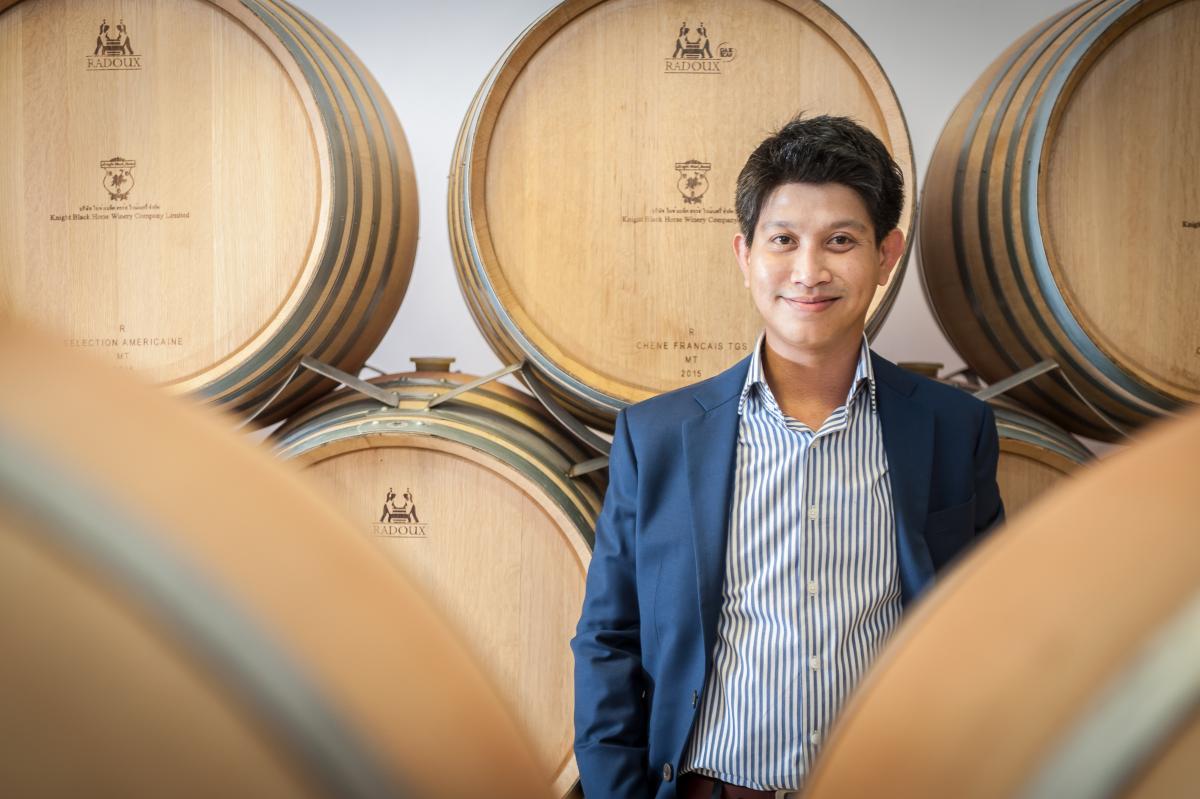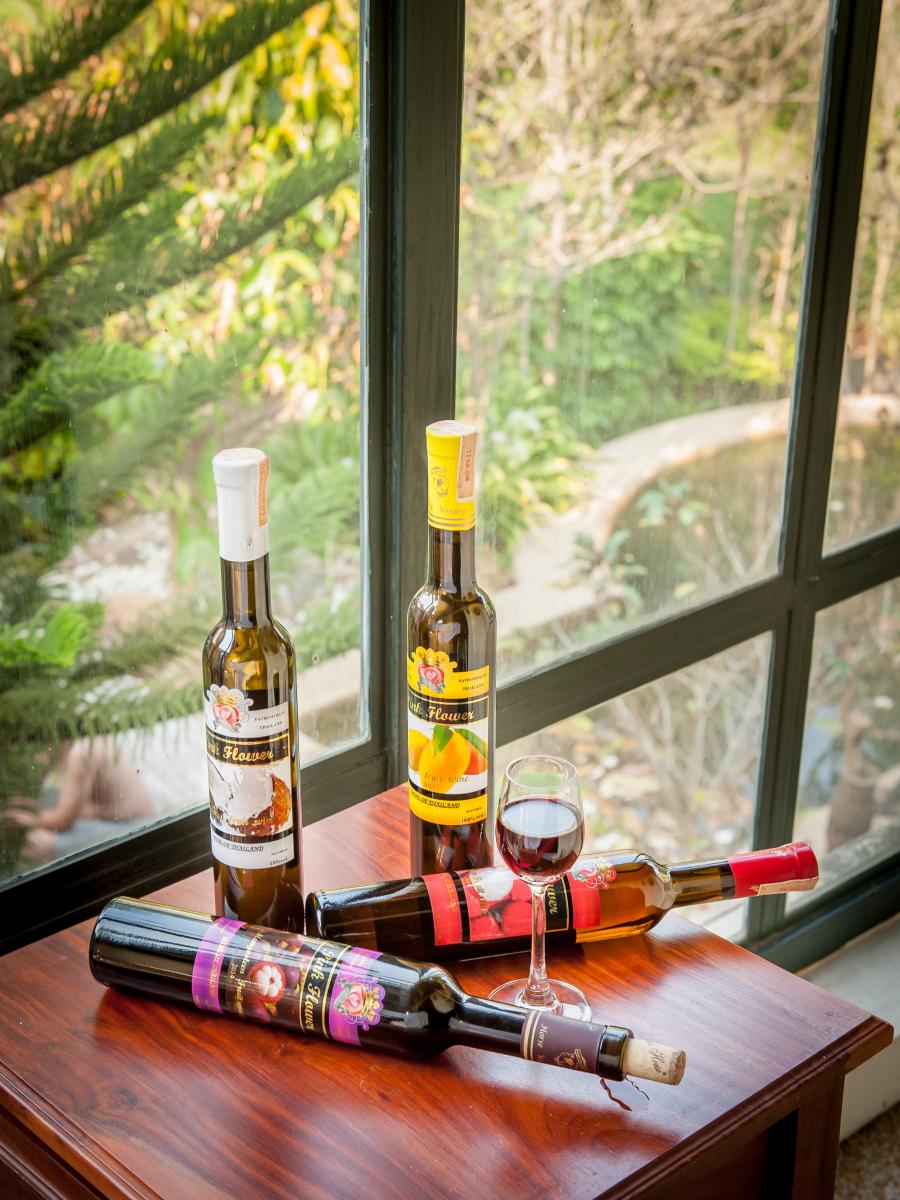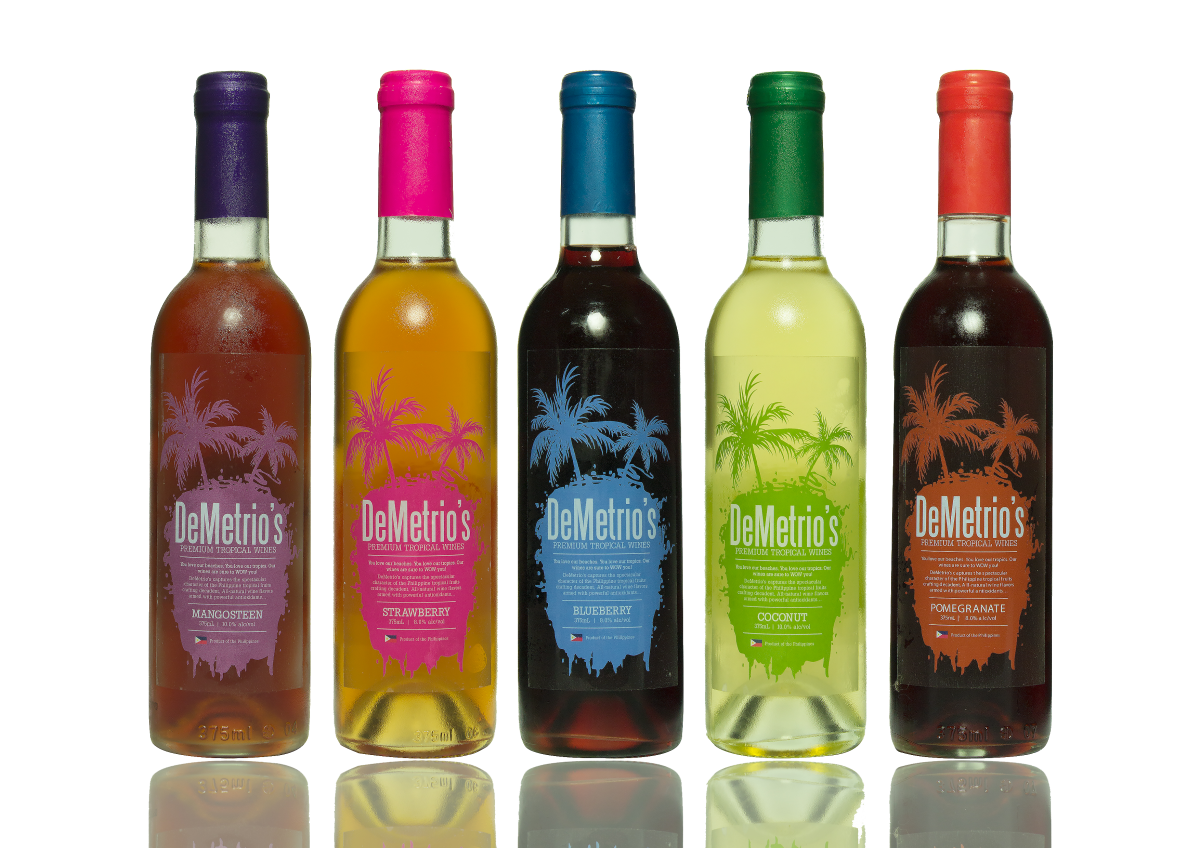WINE is associated with grape, but there are myriad of fruits that can be turned into refreshing wines – berries and tropical fruits such as mango, coconut, lychee, and mangosteen, to name a few. Given the abundance of such fruits in Asia, it isn’t surprising that a number of winemakers are taking on the challenge of producing fruit wines locally.
In Thailand, KBH Winery started making lychee wine more than 10 years ago when the Thai government lifted a ban on domestic alcohol production and encouraged the establishment of small rural enterprises. About 2,000 permits for producing fermented alcoholic beverages were issued.
Poor quality from these small producers, however, proved detrimental to the reputation of local fruit wines. Only nine of these wine makers are still in operation.
Pariyawis Puengpetlarp, CEO of KBH-One, the marketing arm of KBH Winery, says they collaborated with the French institute Laffort for a technology using dried fruit skins. The institute also supplies them with yeast. Samples are sent to the institute regularly to ensure the quality of the wines before bottling and to find out if any adjustments have to be made.

KBH-One CEO Pariyawis Puengpetlarp says tax breaks could help Thai fruit wine exporters become more competitive in the world market
KBH wines have a shelf life of 10 years. The Lychee, Mango and Coconut wines contain 10 percent alcohol and are slightly sweet. The coconut wines can be used as a cocktail ingredient.
According to Mr Puengpetlarp, the company’s Mangosteen wine is so good that even the French are impressed with it. It has more tannin and acidity than the other fruit wines and is similar to grape wine. Recently, his company launched Passion fruit wine with 10 percent alcohol content.
When asked what sets them apart from wine producers in the West, KBH-One managing director Kasilla Puengpetlarp replies, “This is Thailand, some of the best tropical fruits are produced and exported from here. Our monsoon fruit wines are unique in the world market.”

Kasilla Puangpetlarp, managing director of KBH-One says consumer education is needed to positively impact the image of fruit wines in Thailand
This brings us to one obvious advantage to fruit wine production in the region. Main ingredients are not only sourced locally, they are abundant. For KBH Winery, it takes about eight months for the fruit wine to mature and be ready for bottling but since fruits are mostly available throughout the year, production is year-round. The company procures its ingredients throughout Thailand from selected high quality producers. The quantity is pre-agreed with suppliers and sourcing is not a problem. Mango comes from Chacheonsao province, coconut from Samutsakorn province, mangosteen from Chanthaburi province and lychee from Prayao province northern Thailand.
With seven people managing production and logistics, the company turns out about 50,000 bottles a year for the local market with most products sold to tourists. At full capacity, the company can produce up to one million bottles a year. Mr Puengpetlarp believes that KBH is the only winemaker in the region capable of turning out such quantity, although they are currently not operating at full capacity since demand is low. He says other local producers offer cheaper wines which are sourced from overseas and then bottled in Thailand. This makes it difficult for KBH to compete price-wise.
Local and regional consumption
There is a need to educate the local market on the benefits of fruit wine, according to Ms Puengpetlarp. It could also be through promotion of organic products and origins.
KBH’s products are now beginning to circulate slowly in supermarkets. They can also be found in some of the top Thai restaurants worldwide but usually at a high price. The company is trying to get restaurants to lower prices down to a level similar to craft beer, and collaborate with more restaurants which can do food and wine pairing. Ms Puengpetlarp says it is not easy as there is a wide misconception that fruit wines are inferior to grape wines.
In terms of quality, Mr Puengpetlarp says they should be able to compete in the international market. Tax, however, is an issue. “If we do not have to pay stamp duty to sell outside the Kingdom of Thailand our price will be very attractive even in a country that has really high excise taxes,” he said. For instance their wines would retail at US$15 to 20 a bottle in Taiwan or Japan. In Thailand, however, each bottle would only cost the buyer about US$5.
The company is coming out with a new, class 2204 premium label for wines that are primarily for export. Items in this class are for fermented beverages made with fruit and have lower taxes compared to regular wines and other liquor. The new label, which they hope to launch this year, will be targeted at high-end markets and young adults who want healthier alternatives to regular wines.

Pink Flower brand of fruit wines from KBH contain from 10 to 12 percent alcohol. Flavors are coconut, mango, mangosteen, and lychee
Straight from the farm
KBH is also working with fruit farmers to grow fruits specifically for fruit wine production. These fruits would be tested at the laboratory for aroma, flavors and qualities favorable to wine production. This could help improve quality and cost effectiveness in their wine production.

Urban Island’s business development manager Mae Wong is optimistic about the export potential of Philippine fruit wines
Traditionally Filipino
In the Philippines, Urban Island Winery has brought artisan craft winery from Canada to produce local fruit wines, dessert wines and specialty wines. The wines are labeled DeMetrio, named after the company’s Master brewer and co-founder Demetrio Agtarap.
In 2010, the company started offering a range of international wine styles from imported grape juices, using winemaking supplies and equipment from Canada. However, they soon switched focus to brewing local fruit wines to differentiate themselves from the saturated market of commercial grape wines and also to accommodate the local taste for sweet wines.
The company produces fruit wines, coffee wines, and rice wines, and also sells winemaking supplies and equipment.
Urban Island has three kinds of fruit wines on offer: “bignay” or wild berry, mango and mangosteen, all ranging from 10 to 12 percent alcohol/vol. The best sellers are coffee, mangosteen and tapuy or rice wine with most products sold within Metro Manila.
The company can also take in small orders, from 300 to 500 bottles given 30 days’ notice.
Business development manager Mae Wong says that although the company cannot claim direct health benefits from their wines, the fruits – all of which are sourced locally – have high antioxidant properties and their products contain higher pure juice content than typical commercial fruit wines. This enables them to make wine with pronounced and authentic flavors. “We do not use food colorings nor artificial fruit flavorings…We are committed to bring in sophisticated flair to our local wines in terms of taste, label designs and packaging,” she says.

Philippine craft brewer Urban Island Winery offers wild berry, mangosteen and coconut fruit wines
Ms Wong adds that the company does not make wines in a commercial scale due to limited production capacity. They produce an average of 13,000 bottles a year, many of which are sold near the end of the year, during the Christmas season. They can only project double their current wine production volume in the future as they would like to maintain the integrity of their craft winemaking process.
Some of the challenges they face are occasional difficulties in sourcing agricultural products, delay in factory production – mostly of bottles and stock availabilities. They continually review their buying process and maintain close communication with their overseas suppliers to help them acquire their supplies in time and keep their stock levels up to date.
Ms Wong says there is a great potential for independent local winemakers to export their products. “We believe that government trade agencies such as the Department of Trade and Industry and Department of Agriculture are dedicating tremendous efforts to attract international leads through their sponsored product expos and trade events. However, each regional trade office must establish a full on support program for local winemakers in areas of financing, widely available information of retailers or distributors of winemaking supplies and equipment, sustainable winemaking techniques, and effective promotional marketing strategies to boost sales and product awareness in the Asian market.”
Nike Shox Avenue 802













